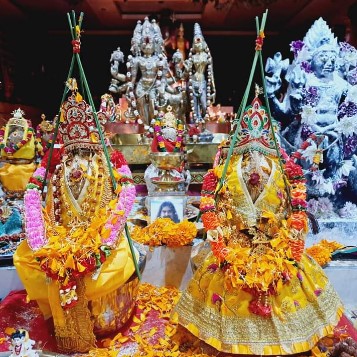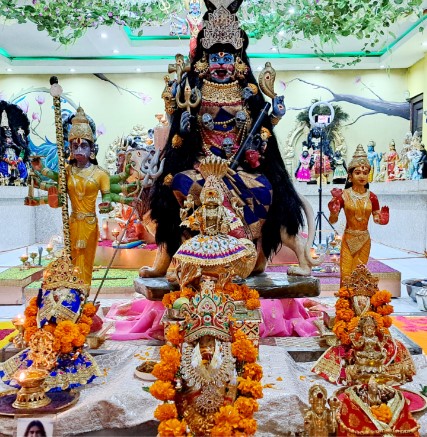What is Kalsa Sthapana?
Kalsa Sthapana is a significant ritual in Sanatana Dharma, particularly during major Hindu festivals and religious ceremonies such as Navratri, Durga Puja, and Diwali.
The term "Kalasa" refers to a sacred pot, typically made of metal (like copper or silver), filled with water and adorned with mango leaves and a coconut. "Sthapana" means "installation." Thus, Kalasa Sthapana is the process of establishing this sacred pot as part of the worship ritual.
Significance of Kalasa Sthapana
- Symbol of Creation and Abundance: The Kalasa represents the universe, with water symbolizing life.
- Invocation of Deities: Used to invoke divine presence, especially during festivals.
- Purification and Protection: Believed to purify the environment and bring peace.
Benefits of Kalasa Sthapana
- Spiritual Upliftment: Enhances devotion and spiritual experiences.
- Blessings and Prosperity: Attracts divine blessings for well-being and success.
- Cultural and Traditional Continuity: Connects individuals to their heritage.


